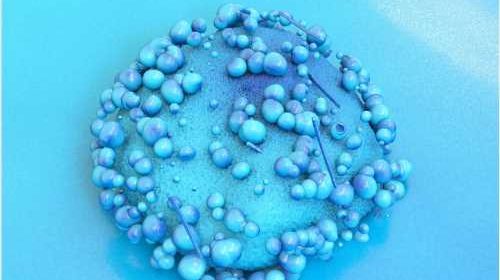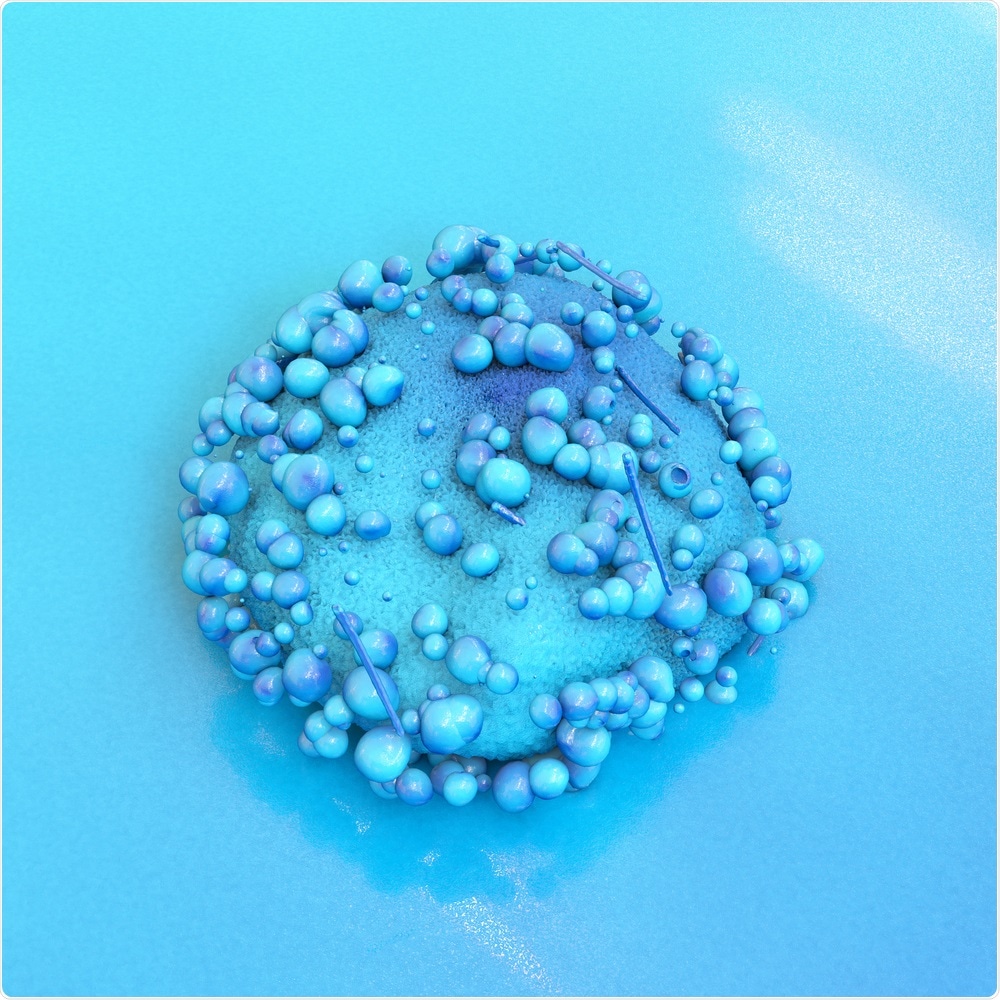A review of mesenchymal stem cell therapy for severe COVID-19

Severe coronavirus disease 2019 (COVID-19) is associated with dysregulation of the host's innate and adaptive immune response and can result in excessive inflammation and organ failure. Besides generic antiviral treatments and oxygen supplementation, certain forms of immunomodulatory treatment, such as antibody therapy, have proven somewhat effective in treating severe COVID-19. However, the side effects of these treatments, particularly when administered to individuals infected with another type of virus, frequently limit the applicability of such treatments.
Mesenchymal stem cell (MSC) therapies are thought to be a much safer alternative to the treatments and have previously been used to successfully treat influenza in animal models. A number of clinical trials featuring MSC therapies against COVID-19 have begun since the beginning of the pandemic.

To this end, a recent Signal Transduction and Targeted Therapy research paper discusses the progress of these trials. In their study, the researchers find that MSC treatment is highly tolerated and effective in reducing lung damage in COVID-19 patients and improving their chances of recovery.
The case for stem cells
Severe COVID-19 causes a severe reduction in the number and frequency of circulating CD4+ and CD8+ T-cells, as well as natural killer cells. Elevated interleukin (IL) responses result in acute inflammation and thus enhanced migration of T-cells, while innate immunity components become increasingly disturbed based on disease severity.
MSCs have demonstrated regenerative properties in a number of applications, including towards type II alveolar epithelial cells by the secretion of hepatocyte growth factor, vascular endothelial growth factor, and keratinocyte growth factor. MSCs are attracted to sites of inflammation and exhibit a modulatory effect towards a variety of immune cells that could suppress the excessive immune response observed in severe COVID-19.
Seven Phase I clinical trials testing the efficacy of MSCs for moderate or severe COVID-19, in addition to three trials for patients with acute respiratory distress syndrome, were reviewed in the current study. Each of these studies concluded that the MSC treatment was well tolerated.
The MSCs utilized in these studies were sourced from the umbilical cord, adipose tissue, bone marrow-derived mononuclear cells, menstrual blood, or embryos. MSCs were delivered intravenously at doses of 1 x 106 – 2 x 108 cells per kilogram of body weight in 1-3 sessions.
The findings included an improved fraction of inspired O2 (FiO2) and partial pressure of oxygen (PO2) levels, alongside an improvement in other clinical parameters and a significant reduction in COVID-related symptoms. Inflammatory cytokine levels were seen to lower in several studies. Further, one study monitoring the volume of lung fibrosis lesions observed a notable reduction in size.
The authors additionally refer to a prior study of their own utilizing umbilical cord-derived MSCs, wherein 101 patients hospitalized with COVID-19 in Wuhan, China were recruited to receive the treatment or placebo. Lung lesion volume was monitored over a 28 day period following treatment.
In their study, the proportion of solid-component lesion volume was lowered significantly in the patients receiving MSC therapy, with the average six-minute walking distance of these patients also found to improve. Additionally, the rate of adverse events was similar between groups, thereby suggesting that the therapy is safe and could be beneficial for COVID-19 patients.
Future use and limitations
Unfortunately, the majority of these studies consisted of fewer than 100 patients. Additionally, these studies were performed in a variety of diverse locations that are governed by differing laws regarding the use of stem cells in research.
Variability in standardization may limit the ability to compare results and optimize therapeutic procedures. To this end, the authors identify several areas that have yet to be optimized, which include the administration regimen, including dose size, frequency, and number. Additionally, the method of delivery, specific time of administration during the course of COVID-19 illness, as well as the storage method of MSCs, which may be used fresh or frozen, all need to be further optimized.
The numerous mechanisms involved in tissue regeneration and inflammation modulation as exhibited by MSCs against COVID-19 will hopefully become clear during Phase III clinical trials. MSC therapy will never replace much cheaper and more readily available solutions such as vaccination. However, this treatment approach could be a useful option in treating those with pulmonary damage resulting from both COVID-19 and any number of other diseases characterized by an excessive immune response and inflammation.
- Shi, L., Wang, L., Xu, R., et al. (2021). Mesenchymal stem cell therapy for severe COVID-19. Signal Transduction and Target Therapy 6(1); 339. https://www.nature.com/articles/s41392-021-00754-6
Posted in: Drug Trial News | Medical Research News | Disease/Infection News | Healthcare News
Tags: Acute Respiratory Distress Syndrome, Adipose, Antibody, Blood, Bone, Bone Marrow, CD4, Cell, Coronavirus, Coronavirus Disease COVID-19, Cytokine, Efficacy, Fibrosis, Frequency, Growth Factor, Immune Response, immunity, Immunomodulatory, Inflammation, Influenza, Interleukin, Mesenchymal Stem Cells, Natural Killer Cells, Oxygen, Pandemic, Placebo, Research, Respiratory, SARS-CoV-2, Stem Cells, Syndrome, Umbilical Cord, Vascular, Virus, Walking

Written by
Michael Greenwood
Michael graduated from Manchester Metropolitan University with a B.Sc. in Chemistry in 2014, where he majored in organic, inorganic, physical and analytical chemistry. He is currently completing a Ph.D. on the design and production of gold nanoparticles able to act as multimodal anticancer agents, being both drug delivery platforms and radiation dose enhancers.
Source: Read Full Article